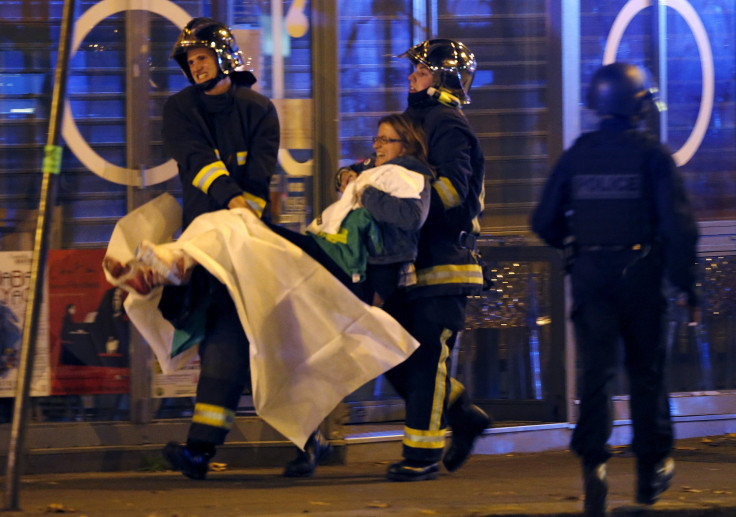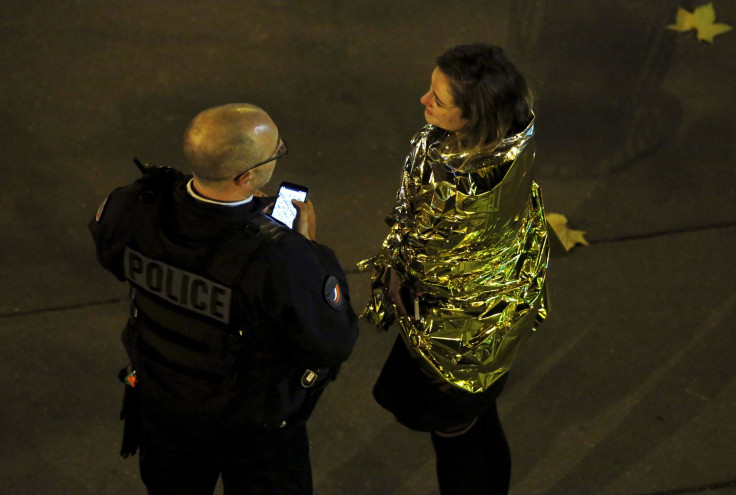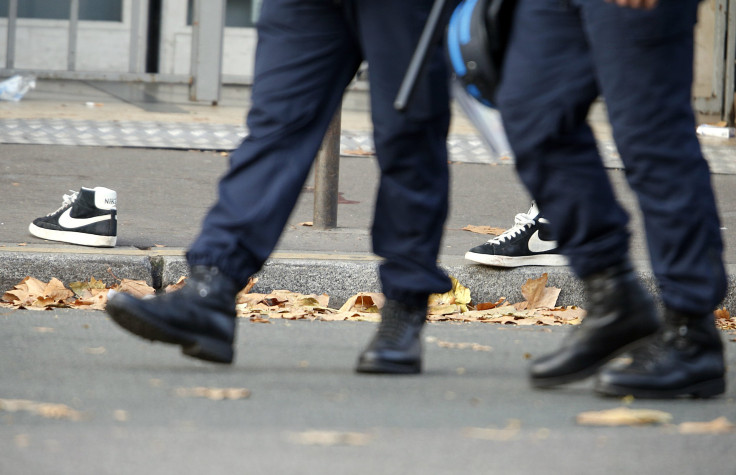Paris Attack: First Responders Often More Resilient Than Most, Experience Less Long-Term Stress

While police in France and Belgium hunt those responsible for Friday’s Paris Attack, emergency workers are dealing with a very different problem: the psychological after-effects of appearing first on the scene. The good news is research finds greater resilience among first responders, while one study suggests these heroes don’t suffer long-term effects, even if they deal with acute symptoms of stress.
According to “The First Responder’s Field Guide to Hazmat & Terrorism Emergency Response,” there are very specific actions taken in the immediate aftermath of an incident such as the one taking place in Paris. The set plan includes an incident commander officially terminating the incident to facilitate a transition from the emergency phase to the restoration and recovery phases of the response. A debriefing is conducted as soon as possible. During this session, responders will summarize the response as it was performed, identify injuries, and unsafe conditions. A post-incident analysis reconstructs the incident to establish a clear picture of the event and also to lay the groundwork for a formal investigation. Following a critique to identify both effective and ineffective measures, the command/control is transferred to other agencies.

Part of the debriefing includes a psychological intervention for first responders. Known as Critical Incident Stress Management (CISM), this structured intervention program provides a sense of necessary, psychological closure. According to the American psychologists who designed CISM, it “evolved from earlier crisis intervention and group psychological debriefing procedures.” Having been used throughout the world, CISM is considered the standard of care.
According to the International Critical Incident Stress Foundation, the CISM intervention follows this basic plan:
- Pre-crisis preparation. This phase is necessary to set expectations and this includes education to help people and organizations improve their coping and stress management skills.
- Demobilization. This consists of large group informational briefings and town hall style meetings immediately following an incident to allow for general psychological decompression.
- Defusing. Conducted in small groups, this three-phased, structured discussion is provided within hours of a crisis as a way to assess any acute symptoms.
- Critical Incident Stress Debriefing (CISD). This small group, seven-phase, structured discussion is provided between one and 10 days post-event to provide a sense of closure.
- One-on-one crisis intervention/counseling. For those responders who require individual psychological support, counseling begins after the CISD.
- Family crisis intervention. Determined by symptoms, family consultations may be staged to create support for those who need more help at home.
- Follow-up and referral. Here, those who may still be suffering post-crisis can be assessed and referred for additional treatment.
While many people confuse the general program with the specific phase known as Critical Incident Stress Debriefing, the authors never intended the debriefing phase to be a stand-alone intervention. Maximum impact can only be achieved when multiple interventions are combined, the authors believe. While many argue CISM is not evidence-based with scant research into whether it actually works, general scientific studies indirectly support the idea behind this intervention.

Resilience of First Responders
Clearly, not enough studies of emergency workers exist; however, the few published reports suggest first responders show greater emotional strength in the face of crisis. For instance, one review of 27 studies conducted by a researcher from Tilburg University in the Netherlands finds experience of a prior traumatic event and the availability of social support to be important predictors of resilience among first responders. Optimism, high self-esteem, and social support also indicated greater hardiness following a trauma.
Results of a study conducted by researchers at University of Bologna showed first responders experience a good level of satisfaction and low level of burnout and compassion fatigue. The Italian researchers also found a greater sense of community among first responders and suggest this may be a “protective factor” for emotional resilience.
Finally, a study conducted by University of Oklahoma researchers following the Oklahoma City bombing, an incident of domestic terrorism which left 168 people dead and hundreds more injured, tracked 51 of the individuals who handled the human remains. Though these first responders experienced stress symptoms immediately following the 1995 bombing, unexpectedly, almost no posttraumatic stress and depressive symptoms were present two years later. Dr. Phebe Tucker, lead author of the study, attributed this resilience to social support; the ability to translate unpleasant situations into meaningful ones; a strong sense of community; and access to critical incident stress management training and debriefing.
Ultimately, training, deep pockets of social support, and post-crisis resources help emergency workers recover more quickly than the rest of us. That said, not all first responders recover easily and promptly following a crisis. In such cases, individual counseling may be necessary; click here for resources.



























